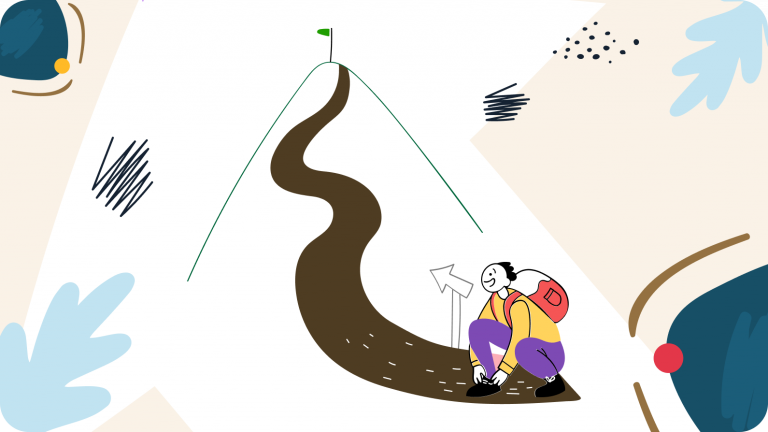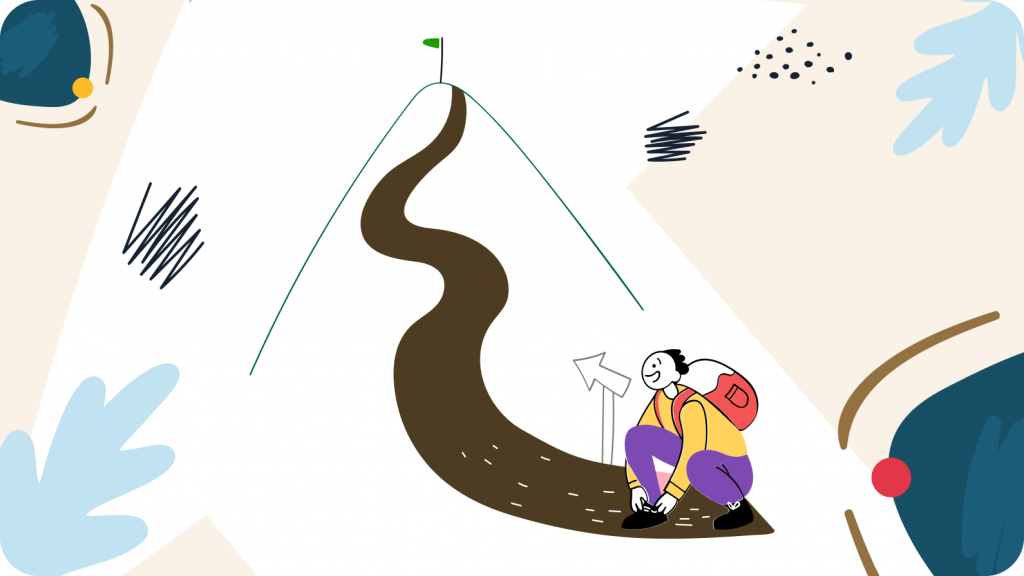How to Master Our Fears through Compassion and a Growth Mindset
When I tell people I’m a clinical psychologist, one of the most frequent questions I get (aside from “Can you read my mind?”) is: “What’s the most common reason people come to therapy?”
The answer is fear. While fear manifests in countless ways, at its core, most struggles stem from it. Here’s a statement that may sound controversial, but I believe is true: Even depression arises from fear. Let me explain.
Understanding Our Emotion Regulation Systems
We have three main emotion regulation systems that evolved to work in harmony:
#1: The Threat/Avoidance System: This system scans for threats in our environment and releases chemicals like cortisol and adrenaline to keep us vigilant. It also monitors our internal state, alerting us to potential dangers in our body. On top of that, we have the ability to anticipate future threats, which we call “worry” or “anxiety.” This capacity for prediction has helped humans thrive by preparing for potential problems before they arise.
#2: The Reward/Goal Attainment System: This system gives us a sense of power and personal success. When we accomplish something, dopamine is released, which motivates us to pursue future goals. The reward and threat systems work closely together—when faced with a challenge, our brain assesses whether we’re likely to succeed or fail. High confidence leads to excitement; low confidence leads to fear and avoidance. Success releases dopamine, reinforcing the sense that we can handle life’s challenges, while repeated failure can erode that confidence and diminish our sense of personal power.
#3: The Rest/Digest (Affiliative) System: This network activates when we’re in a state of peace or connection, allowing us to feel calm and fulfilled. It’s driven by oxytocin, which promotes feelings of love, bonding, and safety. Unlike the other systems, the affiliative system doesn’t operate on success or failure—it’s about being present and content, often through relationships and self-compassion.
Fear, Anxiety, and Depression
Anxiety arises when the threat/avoidance system is overactive, constantly anticipating negative outcomes. This leads to heightened worry and physical symptoms such as restlessness and tension. In this state, dopamine is low because we’re avoiding opportunities for success, which would trigger its release.
Depression, on the other hand, occurs when we feel powerless—unable to control or influence our circumstances. Dopamine, which fuels our motivation and sense of power, is diminished in depression. This lack of motivation and feeling of hopelessness can make even the simplest tasks feel overwhelming, causing us to withdraw further into a state of paralysis. Depression, in many ways, is the result of chronic low power—when we repeatedly fail or believe we will fail, we start to avoid challenges altogether.
Consider my personal example: I was preparing to present a workshop to a new audience. Despite having run this workshop successfully before, the new context triggered a fear of failure. My mind oscillated between excitement and self-doubt. My internal dialogue fluctuated—part of me felt confident, while another part was anxious. In the end, what helped me was activating my affiliative system by offering myself compassion and support. I reminded myself that no matter how the workshop went, I would be proud of my effort.
How Fear Manifests in Existential Concerns
Our fears often revolve around three existential concerns, all related to survival and evolutionary goals:
#1: Physical Health: We need to trust in our body’s strength and resilience.
#2: Social Connections: We must feel loveable and socially accepted to form bonds that are essential for survival.
#3: Competence: We need to believe in our intelligence and ability to develop skills that will help us succeed and thrive.
When we lack confidence in any of these areas, it results in anxiety or depression. Fear drives us to avoid situations where we feel we might fail, but avoidance also prevents us from experiencing the very successes that would help us grow.
Overcoming Fear: Tips to Regain Power
Overcoming fear involves rewiring our brain to approach challenges with courage, rather than avoiding them. Here are some strategies:
#1: Activate Self-Compassion: Fear thrives on self-criticism. Instead, offer yourself unconditional support. This helps shift from avoidance and fear-based thinking to acceptance and calm. Self-compassion activates the affiliative system, which reduces anxiety and increases resilience.
#2: Challenge Limiting Beliefs: Reflect on your early experiences and how they shaped your beliefs about success and failure. Are these beliefs realistic? Can you redefine what success means for you? Often, by reframing failure as a learning opportunity, we can reduce its power to induce fear.
#3: Lean Into Discomfort: Fear tells us to avoid discomfort, but by leaning into challenging situations with a growth mindset, we can rewire our brain to see them as opportunities for growth. Rather than running from situations that trigger fear, approach them with curiosity. Over time, this reduces the brain’s fear response.
#4: Focus on Small Wins: Depression makes us feel like success is out of reach. By focusing on small, achievable tasks, we can reignite the reward system and build momentum. Each small win releases dopamine, reinforcing our sense of power and motivating us to take on bigger challenges.
#5: Practice Gratitude and Connection: Genuine connection with others and gratitude practices help activate the rest/digest system. This reduces anxiety and fosters a sense of fulfillment, allowing us to experience joy without the pressure of achievement.
Conclusion
Fear, whether experienced as anxiety or depression, is a natural response to perceived threats. But when fear dominates, it prevents us from enjoying life’s successes and connections. By understanding how dopamine and our emotional regulation systems interact, we can see that much of our suffering comes from feeling powerless. Through self-compassion, challenging limiting beliefs, leaning into discomfort, and celebrating small successes, we can rewire our brains to reduce fear, increase our sense of personal power, and approach life with greater courage, excitement, and joy.















